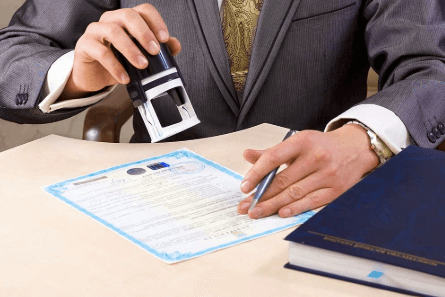Who Has the Authority to Override a Power of Attorney?

Understanding the Basics of Power of Attorney
A power of attorney (POA) is a legal document that allows one person, known as the agent or attorney-in-fact, to act on behalf of another person, referred to as the principal. This arrangement is often used to manage financial, legal, or healthcare decisions when the principal is unable to do so themselves, such as due to illness, incapacity, or absence.
POA agreements can be tailored to fit specific needs. For example, a general POA grants broad powers, while a limited POA restricts the agent to certain tasks or timeframes. Similarly, a durable POA remains in effect even if the principal becomes incapacitated, while a non-durable POA terminates upon such an event.
At Johnson Legal, we often hear concerns about who can override a power of attorney. It’s crucial to understand that while the agent is granted authority, this power is not absolute. Safeguards exist to ensure accountability and protect the principal’s interests. If an agent oversteps their bounds or breaches their fiduciary duty, legal avenues are available to intervene.
Understanding the fundamentals of a POA helps clarify the roles and responsibilities involved, empowering individuals to make informed decisions when drafting or managing these agreements.
Circumstances That Allow Power of Attorney to Be Overridden
A power of attorney (POA) is designed to empower an agent to act in the principal’s best interest, but certain situations may require overriding it. This typically happens when the agent fails to fulfill their fiduciary duty or acts against the principal’s wishes. For example, if the agent misuses funds, neglects responsibilities, or engages in fraudulent activities, legal action can be taken to challenge their authority.
Changes in the principal’s circumstances can also warrant intervention. If the principal regains capacity or decides they no longer want the agent to act on their behalf, they can revoke the POA. Additionally, if the POA was granted under duress or coercion, courts may nullify it upon review.
At Johnson Legal, clients often ask, “Who can override a power of attorney?” The answer depends on the specific situation. Typically, the principal retains the right to revoke it while mentally competent. In cases of incapacity, family members or other interested parties can petition the court for intervention, especially if the agent’s actions are harmful.
Understanding these circumstances ensures that a POA remains a tool for protection and not one of exploitation, safeguarding the principal’s rights and well-being.
See also: Protect Your Business and Personal Assets with Legal Guidance
Who Has Legal Authority to Override a Power of Attorney?
While a power of attorney (POA) grants an agent authority to act on behalf of the principal, certain individuals or entities have the legal right to intervene and override it under specific conditions. The principal holds the primary power to revoke the POA at any time, provided they are mentally competent to make such a decision. This revocation must often be documented in writing to ensure clarity and prevent disputes.
If the principal becomes incapacitated, family members or close associates may seek to override the POA if the agent is found to be acting improperly. For example, if the agent breaches their fiduciary duties by mismanaging funds or making decisions that harm the principal, relatives can petition the court for the removal or replacement of the agent.
Courts also play a crucial role in oversight. A judge may override a POA if evidence of fraud, coercion, or abuse of power is presented. Additionally, institutions like banks or medical facilities can flag and challenge an agent’s authority if suspicious activity is detected.
At Johnson Legal, we emphasize understanding who can override a power of attorney to ensure the document is used ethically and in the principal’s best interest. Legal intervention safeguards both the principal and the integrity of the agreement.
The Legal Process for Overriding a Power of Attorney
Overriding a power of attorney (POA) involves a structured legal process to ensure fairness and protect the interests of the principal. Whether initiated by the principal or concerned parties, the steps vary depending on the situation but follow clear legal guidelines.
For a principal who is mentally competent, revoking a POA is straightforward. They can draft a revocation document specifying their decision to terminate the agent’s authority. This document must be signed, notarized, and shared with relevant parties, such as the agent and institutions relying on the POA.
If the principal is incapacitated or unable to act, family members or other interested parties must take additional steps. This often involves filing a petition with the court to review the agent’s actions. Evidence of misconduct, neglect, or abuse must be presented to justify overriding the POA. A judge will assess the case and may revoke the agent’s authority or appoint a guardian or conservator to act in the principal’s best interest.
At Johnson Legal, we guide clients through the complexities of who can override a power of attorney and how to navigate the legal process effectively. Proper documentation and adherence to legal procedures ensure that the principal’s rights are upheld and protected.
Conclusion
Understanding who can override a power of attorney is vital for safeguarding the principal’s interests. With clear guidelines and legal support, such as Johnson Legal PLLC, you can ensure proper accountability and protection.







